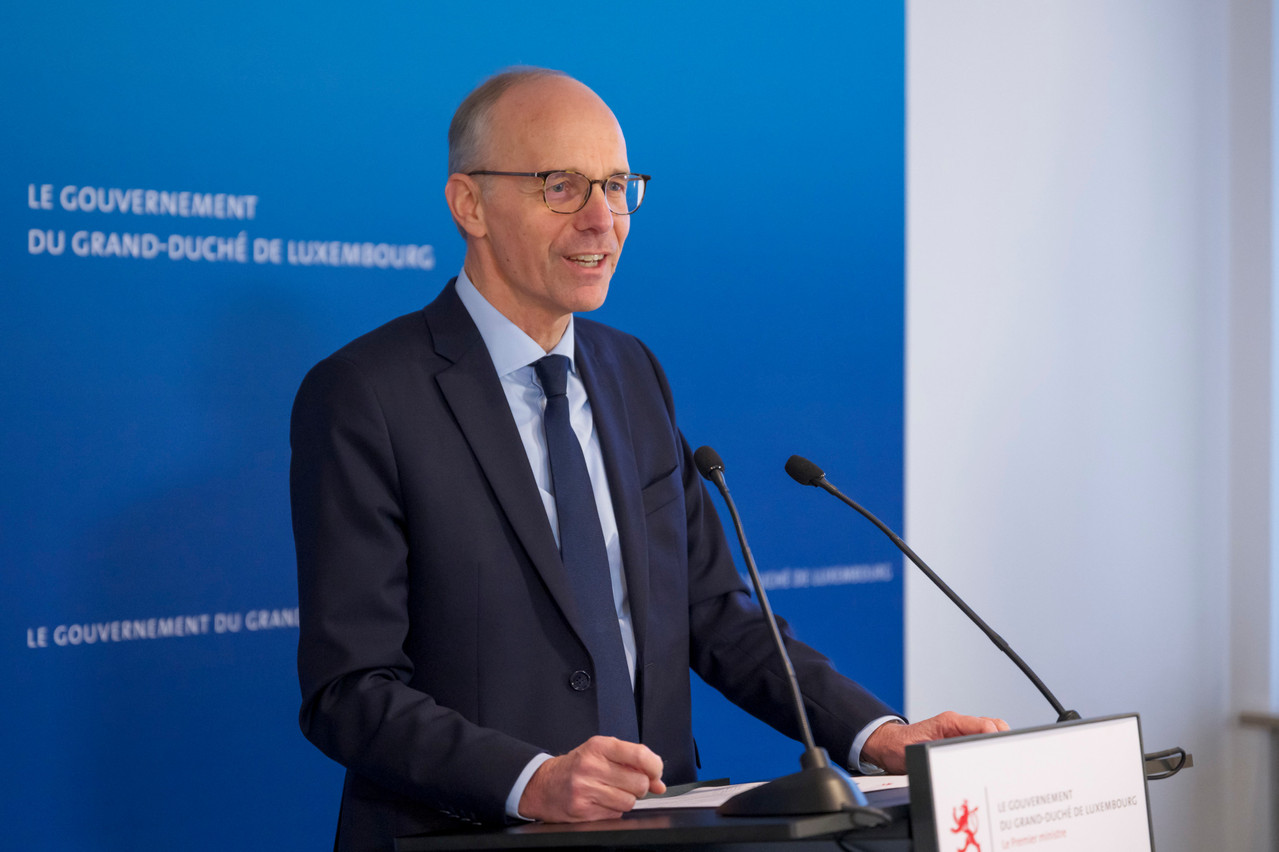Just before boarding his plane for the Munich Security Conference, prime minister (CSV) spoke to journalists about the cabinet meeting held on Friday 14 February. “This week, I have taken part in several important meetings, on European security, but also on artificial intelligence at the Paris summit,” he began.
Recalling that the third anniversary of the start of Russia’s full-scale war in Ukraine was approaching, Frieden confirmed Luxembourg’s position, “which stands by Ukraine and the Ukrainian people. The new Trump administration wants to dictate the course of the world and of Europe, so we must both defend our common European values, but also remain an ally of the United States because we have a shared history since the end of the Second World War.”
“Think as a single army”
The prime minister also returned to the evolution of the defence effort to reach , to remain in line with the commitments made to Nato. “Discussions are even under way to increase this percentage, and we need to be prepared for a figure of more like 3%. We can’t rest on the shoulders of others, we all have to make an effort. We need to look at what we need in Europe, and where our military capabilities lie. This will involve national and European budgets, and we will have to discuss all that. But I would like to point out that other countries, such as Italy, Spain and Belgium, have not yet reached the 2% threshold. But some countries have already reached 5% and are putting pressure on the other countries to show solidarity.”
As a reminder, at the , the allies committed to devoting at least 2% of GDP to defence. Luxembourg can use GNI (gross national income) instead of GDP as an indicator, which is more representative of the grand duchy's economic situation. Since its GNI is lower than its GDP, this reduces its defence spending target in absolute terms.
Frieden stressed that “European countries need to take decisions together, to strengthen our economy, to be less dependent on third parties, as in the case of energy. And on the military front too, we Europeans need to produce more weapons so that we don’t have 27 or 30 separate armies, but think as a single army.”
Bilateral discussions with the unions
Another topical issue is social dialogue, which the OGBL and LCGB trade unions regularly criticise the government for abandoning. “I would remind you that the government is committed to good social dialogue with all the social partners, and this has been proven time and time again. We recently reached a wage agreement with the CGFP [General Confederation of Civil Servants] and we will continue talks with the private unions. At the last LCGB congress, three ministers spoke, so that’s positive.”
“Bilateral discussions will be held with the unions after the Carnival holidays to see where the main grievances lie. I’m very open to the positions of the unions on the one hand and the companies on the other. I am convinced that our country is characterised by a spirit of dialogue,” insisted the prime minister.
Among the more “popular” announcements, Luc Frieden announced, for example, that the festivities for the handover of power between and would take place on 4 October. “We have also authorised sports minister (CSV) to submit Luxembourg’s bid to host the Tour de France in 2028, the year that will mark the centenary of [Luxembourgish cyclist] Nicolas Frantz’s victory.”
This article was originally published in .
